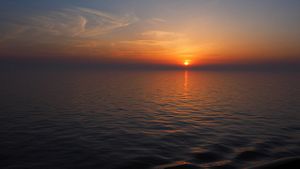Philippine President Rodrigo Duterte expects formal bilateral talks with China on disputed waters in the South China Sea to commence “within the year.” Speaking on Tuesday, Duterte said that he would not bring up the South China Sea disputes or the award of a Hague-based tribunal that heavily favored the Philippines over China at the upcoming Association of Southeast Asian Nations (ASEAN) summit in Laos or its associated meetings, including the East Asia Summit.
According to Reuters, Duterte told reporters that it was “better to continually engage China in a diplomatic dialogue rather than anger officials there.” Though he spoke sharply on the South China Sea during his campaign for the presidency, resolving to personally plant the Philippines flag on features claimed by the Philippines, Duterte has increasingly softened his approach. China rejected the validity of the arbitration tribunal’s decision and has said that its South China Sea disputes should be dealt with in a bilateral setting.
Since the highly anticipated July 12 verdict in the 2013 case filed by the previous Philippine government concerning maritime entitlement disputes in the South China Sea, Duterte’s government has sought to manage tensions with Beijing. Before his comments on Tuesday, Duterte had dispatched former Philippine President Fidel Ramos to China for informal discussions. As I wrote then, Ramos’ trip succeeded in laying the ground for subsequent talks, but these hinge on the post-award status quo in the South China Sea remaining constant.
Even if the Philippines does not bring up the tribunal’s award or the question of the South China Sea at the upcoming bout of Asian summitry in Laos, it’s almost assured that other states will. The Philippines and China are but two of five total claimants that will be present in Laos, including Vietnam, Malaysia, and Brunei. (Taiwan, though not participating in the summits, is also a claimant.)
Duterte’s government hasn’t publicly revealed what objectives it wants to pursue in talks with China. The tribunal’s award favored the Philippines’ position on nearly all questions, making it unlikely that Manila would be able to offer any real concessions in direct talks. Moreover, while Ramos’ talks with his Chinese counterparts produced a shortlist of several modest cooperative schemes, none of the recommendations involve the Philippines allowing China to exploit resources at Reed Bank or Scarborough Shoal. Both features are likely to remain sticking points in bilateral talks; China continues to control Scarborough Shoal, which it seized from Manila in a 2012 stand-off.

































